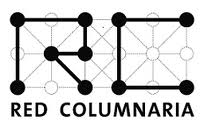
To reconcile and to reincorporate: Discourse, ceremonies & practices in and beyond the Iberic Monarchies
Réconcilier et réincorporer: Discours, cérémonies et pratiques dans et autour des monarchies ibériques
Reconciliación y reincorporación: Discursos, ceremonias y practicas en las Monarquías Ibéricas
Valenciennes/Kortrijk, 24-26 November 2016
Schedule: Programme XII Jornadas
In recent years historiography has been slowly acknowledging the potential of civil societies to restore concord after profound divisions. It also has uncovered the pacification strategies of authorities to reconcile and reincorporate individuals and social groups after periods of contestation and revolt. These complex processes are crucial to better understand the history of the Iberic monarchies, which have been able to develop a long-term government despite many crises of different origin and outlook.
Hence, this conference will be focused on the themes of reconciliation and reincorporation from following four perspectives, inviting papers on the subjects listed below:
Words, discourses and emotions: semantics and sentiments
The restauration of civil concord and the obedience to the ruler was shaped by different words and discourses, which on their turn, became connoted with a wide range of emotions. This panel aims to unravel semantics and sentiments behind early modern reconciliation and reincorporation.
Negotiating reconciliation: promotors and strategies
If reconciliation is often perceived as a process emanating from early modern rulers, in practice it is more often negotiated by many other actors, such as local institutions, local elites, governmental bodies etc. What were their formal and informal strategies to pursue peace and concord?
Making reconciliation work: agents and mediators, processes and forms
Peace-making implied more than just signing a treaty, often a long pacification process aimed to put into effect the clauses and to spur the recently concluded reconciliation through the means of ceremonies, festivities, visual representations etc. Again, agents and mediators were necessary to spread and enact the peace message in the societies of the Ancient Regime.
In the margin of reconciliations: the undecided and excluded
If reconciliation parted on a federative discourse, it excluded formally or informally individuals, or it risked hostile reactions and vetoes from opponents. Rather than presenting reconciliation as a fact, as done by the stakeholders involved, this panel will define early modern reconciliation as an open-ended process with an always uncertain and unstable outcome.
The conference volume published by Brepols Publishers in the new series Habsburg Worlds will be in English and French. During the conference one can also present in Spanish, Italian and Dutch.
Organisation committee :
Yves Junot (Université de Valenciennes) and Violet Soen (KU Leuven)
Coordinators of the nodo Borgonña-Flandes of Red Columnaria
Academic committee:
Tamar Herzog (Harvard University), Marie-Laure Legay (Université Lille3), Guido Marnef (Universiteit Antwerpen), José Javier Ruiz Ibáñez (Universidad de Murcia), Gaetano Sabatini (Università degli Studi Roma Tre), Werner Thomas (KU Leuven), René Vermeir (Universiteit Gent)

